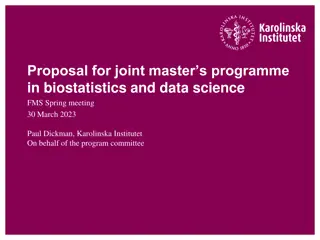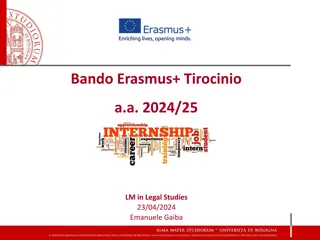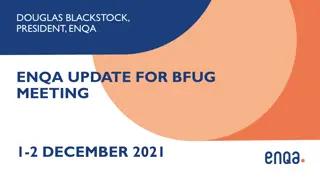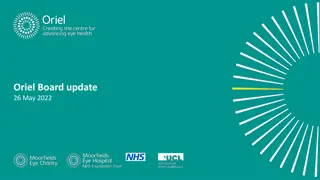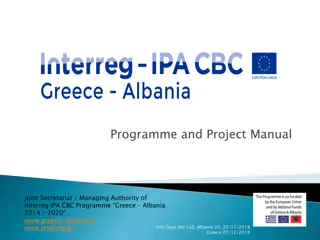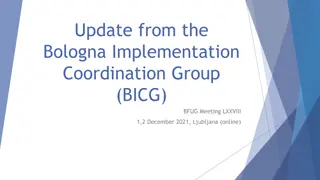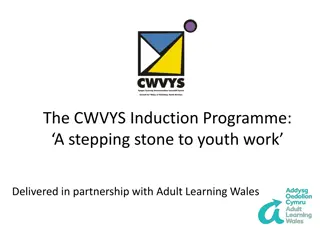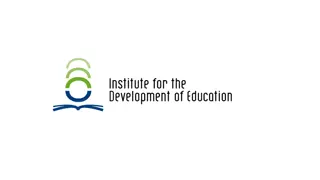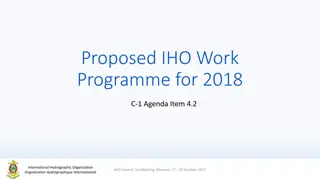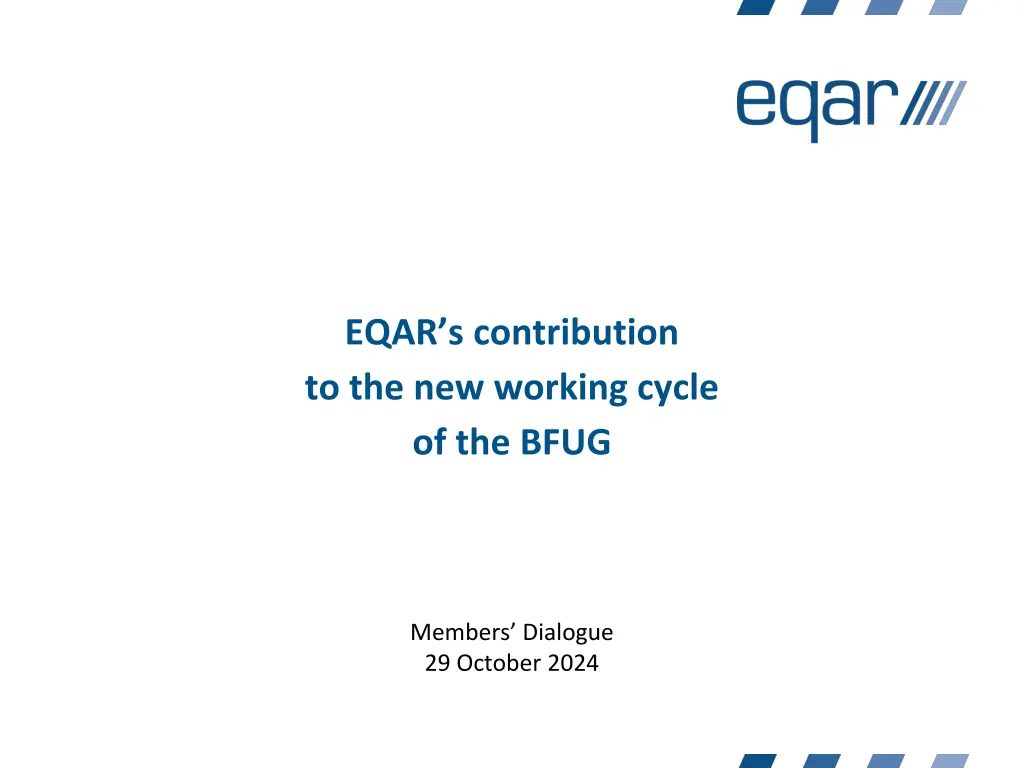
EQAR's Role in Enhancing European Higher Education Quality
EQAR plays a pivotal role in promoting transparency, trust, and quality assurance in European higher education through managing a register of compliant QA agencies. Their contribution aligns with EHEA commitments and supports international recognition, ensuring standards across the EHEA.
Download Presentation

Please find below an Image/Link to download the presentation.
The content on the website is provided AS IS for your information and personal use only. It may not be sold, licensed, or shared on other websites without obtaining consent from the author. If you encounter any issues during the download, it is possible that the publisher has removed the file from their server.
You are allowed to download the files provided on this website for personal or commercial use, subject to the condition that they are used lawfully. All files are the property of their respective owners.
The content on the website is provided AS IS for your information and personal use only. It may not be sold, licensed, or shared on other websites without obtaining consent from the author.
E N D
Presentation Transcript
EQARs contribution to the new working cycle of the BFUG Members Dialogue 29 October 2024
EQAR: Mission and Role Increase the transparency of quality assurance, Provide clear and reliable information on quality assurance provision in Europe Thus: Enhancing trust among actors Strengthening confidence in European higher education Promoting mobility and recognition To achieve this, EQAR: Manages a register of QA agencies that substantially comply with the ESG Provides publicly accessible dana on external QA results (DEQAR)
EQAR Mission Relevant to: The revision of the ESG Automatic recognition Use of the European Approach for QA of Joint Programmes Cross-border QA Progress in the QA of microcredentials Topical and developmental initiatives related to QA and recognition DEQAR supports our role as a trusted authority in ensuring quality standards across the EHEA
EQARs contribution to the EHEA EHEA key committments: 1. A Three-Cycle System compatible with the QF-EHEA 2. Compliance with the Lisbon Recognition Convention (LRC) 3. Quality Assurance in compliance with the ESG
EQARs contribution to the EHEA EHEA key committments: 1. A Three-Cycle System compatible with the QF-EHEA 2. Compliance with the Lisbon Recognition Convention (LRC) 3. Quality Assurance in compliance with the ESG
EQARs contribution EHEA Key commitment 2: Recognition Facilitate international recognition in EHEA in line with the LRC Through: Maintaining a register of trustworthy QA agencies and their external QA results EQAR knowledge database as a: Unique repository of experience In-depth knowledge of the QA landscape Understanding of the concrete of issues of recognition DEQAR as a powerful and up-to-date information and transparency tool, with links to: ENIC-NARICs tools and workflows European Digital Credentials for learning (EDC) infrastructure European Blockchain Services Infrastructure (EBSI) (in future) European Higher Education Sector Observatory (EHESO)
EQARs contribution EHEA Key commitment 3: Quality Assurance External evaluation of QA agencies: maintaining trust in external QA results in EHEA Contribution to the revision of the ESG Contribution to new developments in the field of external QA Through: Maintaining a register of trustworthy QA agencies (emphasising consistency and transparency in external evaluation of QA agencies) 1Membership in the ESG revision Steering Committee and constant liaising with the E4 and social partners (Education International and Business Europe) Revision of the European Approach to QA of Joint Programmes Providing expert input or support on different developmental initiatives: QA of micro-credentials and other providers (including information on their certification) European degree
EQARs contribution Applications for membership in BFUG working structures: 1. Working Group on Monitoring (Implementation) 2. Thematic Peer Group B on Recognition 3. Thematic Peer Group C on Quality Assurance 4. Task Force on a Long-term Secretariat

